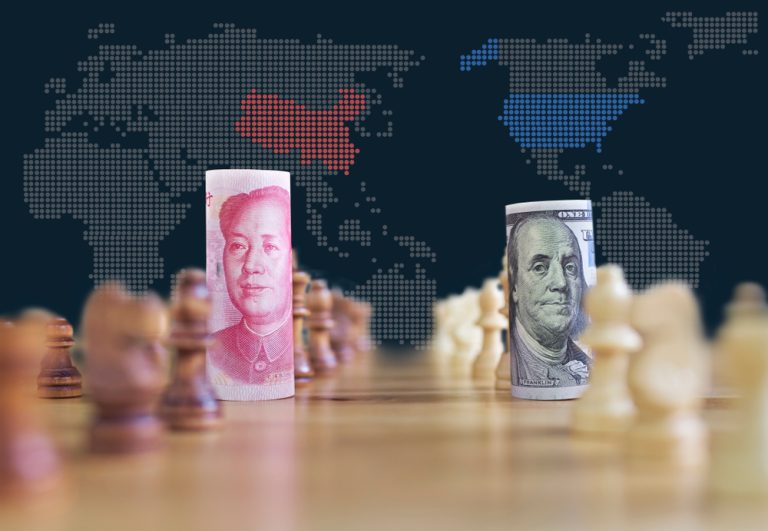
Protests in Israel as an indicator of the changing political landscape of the Middle East
For most of Israel’s existence, at least in the Western world, there have been two fairly consistent legends about the state. According to one, the country, surrounded by hostile Arab regimes, has constantly exhibited miracles of national unity, and has always put common interests above internal contradictions and conflicts. This made Israel unique among the European countries, to which it undoubtedly belongs, where the “golden era” of nation-states is a thing of the past, and society was deeply divided along social and ethnic lines. According to the second view, Israel and the United States have always had a special relationship in which the Jewish state has consistently defended American interests in the Middle East and Washington has consistently supported official Tel Aviv in every situation. Some particularly radical conspiracy theorists have even speculated that it was Israel that was controlling U.S. policy through the powerful Jewish lobby in that country. But the events of February-April 2023 have probably put such views into the realm of idealistic myths.
Protests against the judicial reform which nationalist Prime Minister Benjamin Netanyahu decided to carry out and which peaked on March 27, hit Israel hard. This kind of reform was typical of right-wing national governments in European countries. Back in 2012, such transformations were successfully implemented by Hungarian Prime Minister Viktor Orbán, while Polish President Andrzej Duda refused to introduce such measures only under pressure from EU authorities. Their goal was the full or partial subordination of the judiciary to the legislative and executive powers. According to the new Israeli law, it was intended to transfer control to the parliamentary majority over the process of selecting Supreme Court judges, as well as to abandon the legislative principle allowing the Supreme Court to overturn government decisions. In reality, by the standards of the aforementioned countries, these reforms were very mild, and aimed at systematizing the law in a country that did not even have a single written constitution. But Netanyahu’s left-liberal opponents saw this as an attempt to usurp power, and they tried to put a harsh end to it with their protests. It turns out that the conflict between “progressive” leftists and “nationalist” conservatives, common in the United States and almost all European countries, is just as acute in Israel. In the past this was little known to those ignorant of Israeli politics, but now it has become obvious to everyone that fundamental differences in the country’s future are much more important to the opposing sides than abstract national unity.

The U.S. role in the conflict was “unexpected”. We have written before that the relationship between Washington and Tel Aviv cooled down considerably after the Democratic administration came to power in 2021, which was betting on a diversification of political stakes in the Middle East. If during Lapid’s premiership the friendly U.S. attention to Palestine and Iran was perceived as a temporary misunderstanding, Netanyahu has set a clear course to defend his country’s national interests against new political threats. One of the indirect goals of judicial reform was the desire of the Israeli authorities to take control of various American NGOs, whose activities in the country they saw as potentially dangerous. After that the U.S. leadership had every reason to want a change of power in Israel, and the very scenario and symbolism of the protests against judicial reforms strongly resembled similar events in countries such as Serbia, Georgia, or Ukraine. There, the U.S. administration was actively providing political, organizational and financial assistance to the protesters in order to pursue its own interests, and this was understandably suggestive. Eventually, the U.S. was openly concerned about developments in Israel after the resignation of Defense Minister Yoav Gallant, an opposition to Netanyahu. Even before that, Yair Netanyahu, the son of the Israeli prime minister, had in fact accused the U.S. of organizing the unrest leaving no doubt about the nature of the confrontation.
Obviously, these events did not happen all of a sudden. Even before the protests began, Netanyahu’s entourage had been accusing the United States Department of State of funding protest in Israel for weeks. It is the main sponsor of the Israeli NGO, the Movement for Quality Governance, which organizes protests against Netanyahu. Democrats in Washington reacted very negatively to the victory of the right-wing coalition led by Netanyahu in last year’s elections and immediately afterwards launched an FBI investigation into the murder of a Palestinian-American journalist from Al-Jazeera TV. Recently, the White House has expressed dissatisfaction with the change of course regarding the future of settlements in the West Bank. In addition, Washington has insisted on easing judicial reform and abandoning restrictions on the power of the Supreme Court. Now it is tendentiously urging Netanyahu to compromise with the protesters, and demanding “democratic values”. It should be understood that this is not the first time that the State Department has been at the center of a scandal involving attempts to influence the intra-Israeli agenda. In 2015 it financed a liberal NGO that worked against Netanyahu in the Knesset (parliament) elections that year, but then it provoked a harsh reaction from the opposition Congress, and the project had to be shut down. It is likely that the Republicans in the current Congress may launch another investigation against Biden for his involvement in the change of power in Israel. But the only way they can seriously influence the situation is during the summer budget reconciliation process by reducing the Department of State spending on this kind of “foreign projects”. Netanyahu probably hopes for a Republican victory in the presidential elections of 2024, but before that he needs to hold power for another year and a half and during this time he will have to manage on his own.
We should not expect a rapid return to unconditional friendship and partnership between Israel and the United States, nor should we expect it from a profound change in American society. While in the past most of American society, regardless of party affiliation, was sympathetic to Israel, a recent annual Gallup poll showed a significant drop in support for Israel among Democrats and independent voters. In addition, for the first time in the poll’s history, Democrats have become more sympathetic to Palestinians than to Israelis. The pro-Israeli consensus in the U.S. is gradually receding into the past, although Israel continues to actively support the Republican electorate. It is telling that Ron DeSantis, the candidate in the primaries, will soon be visiting Israel as a gesture of support for Netanyahu. But the Democrats’ perception of Israel is increasingly negative, and there is not only a party split, but also a generational split. The old generation is in the habit of supporting Israel, but among the youth, 56% already view Israel negatively. It is this wing of the young left that most strongly criticizes Israel. They call it an “apartheid state” and call for a BDS policy of “boycott, sanctions and non-investment” against Israel, especially when the right is in power. Congresswoman Ilhan Omar is especially notorious for this, having been expelled from several congressional committees after the November elections.

Obviously, with the change of generations in U.S. politics, the U.S.-Israeli relations will become more and more problematic. Israel seems to understand this, which is why it is more actively cooperating with China, bypassing the U.S., and even transferring some of its assets from the dollar to the yuan. In turn, one has to realize that sooner or later the old-school Democrats like Biden, who are still trying to criticize Israel mildly, will retire. And young Democrats like Ocasio-Cortez or Omar, who are much more radical about Israel, will come to the fore. And they will be the ones who, once in power, will not just criticize Israel, but may well cut off military aid to Israel or even start imposing sanctions. Yes, these difficult periods will give way to a “Republican warming,” but Israel will no longer be a special country for the U.S., and its relations with Washington will depend on the political pendulum we have written about in the case of Latin America. The current battle, however, is rather left to the Democrats, both American and Israeli. Israeli Prime Minister Benjamin Netanyahu intends to suspend the scandalous reform of the Supreme Court and postpone the final decision on its implementation until the summer. However, it is clear to everyone that the essence of the protests is not this reform at all, but an attempt to remove the right-wing Likud party from power. But the final outcome of the struggle is still not clear, and while the protests at the end of March came as a shock to Netanyahu, on April 2 the police stopped them quite effectively with batons and water cannons. This means that if Netanyahu nevertheless succeeds in keeping his position as Prime Minister, he will surely strike back, and not only against his internal political opponents. His chief foreign policy target will be the USA which so insistently wished him “political death”. In any case, there will be difficult times ahead for Israel, where it will have to rely strictly on its own strength and cunning in its negotiations with Turkey, Saudi Arabia and Iran.


Average Rating